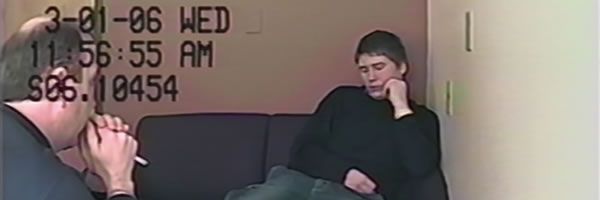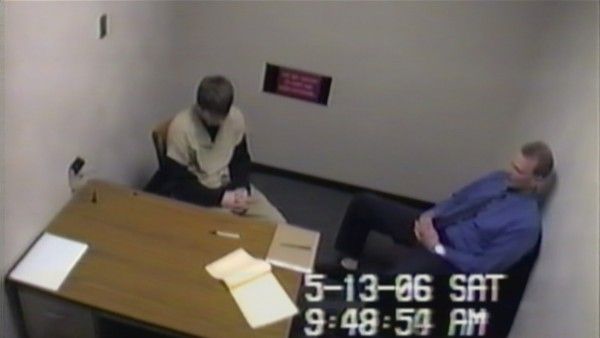Making a Murderer is the right topic with the wrong subject. The true-crime documentary series focuses on injustice and questionable police procedure, but you’re left with the feeling that Steve Avery really did kill freelance photographer Teresa Halbach in 2005, and that the police just went overboard on trying to get a conviction they probably could have come by naturally. Directors Moira Demos & Laura Ricciardi should have found a wrongfully convicted felon (it’s not like there’s a shortage of them) and followed their story, which would have reached the same conclusion.
The more effective part of their documentary is the focus on the young Brendan Dassey, who was also convicted with Avery. What makes Dassey’s part of the documentary more compelling is the video showing how his confession was coerced out of a young man who is clearly mentally disabled and should have had a parent or guardian present at his interrogation.
A federal judge agrees and ABC News reports that Dassey’s conviction has been overturned:
In court documents obtained by ABC News, a judge ruled that Dassey's confession was obtained by investigators giving the then 16-year-old "false promises." The documents stated that "investigators repeatedly claimed to already know what happened...and assured Dassey that he had nothing to worry about."
Along with "Dassey’s age, intellectual deficits, and the absence of a supportive adult," the confession was ruled "involuntary."
Netflix is currently working on a second season of Making a Murderer, which will continue to focus on Steve Avery’s case, but I’m curious to see what they will do with Dassey. Keep in mind that Dassey isn’t in the clear just yet. Prosecutors still have 90 days to refile, and it will be interesting to see if they want to continue pursuing charges against Dassey. It seems like they would have difficulty doing so since Dassey's confession was they key to the prosecution's entire case.


